Results
-
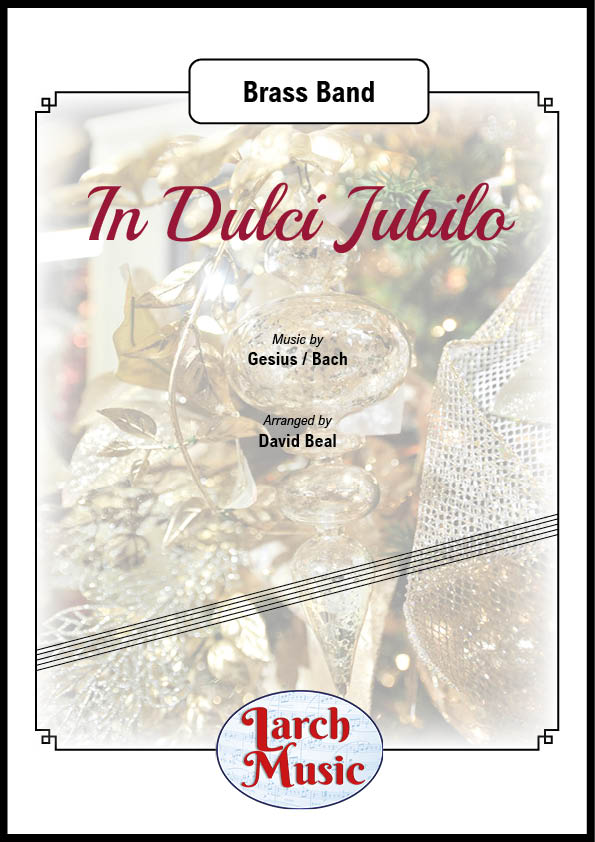 £30.00
£30.00In Dulci Jubilo (Gesius/Bach arr. by David Beal) - Brass Band Sheet Music Full Score & Parts - LM105 - Gesius / Bach
COMPOSER: Gesius / BachARRANGER: David BealA wonderful arrangement of this classic piece given a "through the ages" treatment. Starting with a nice ensemble version developing into a classic light rock version then moving into a Bach Choral harmonious style to a large vibrant ending.One for your Christmas concert.LM105 - ISMN : 9790570001057
In Stock: Estimated dispatch 3-5 working days
-
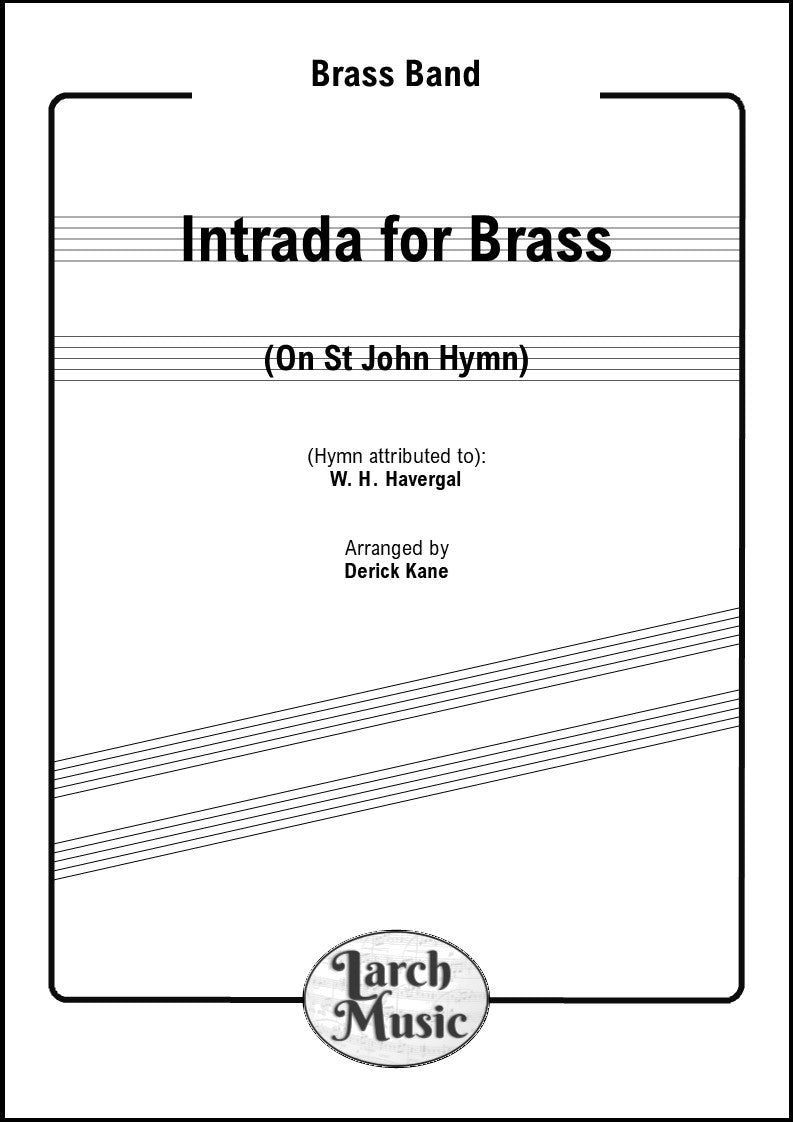 £25.00
£25.00Intrada for Brass - Brass Band - LM807 - W. H. Havergal - Derick Kane
COMPOSER: W. H. HavergalARRANGER: Derick KaneNew from the pen of renowned euphonium star, Derick Kane, an exciting arrangement based on the hymn tune St John.A slow hymnal opening follows by exciting rhythms in 10/8 with other time changes (6/8, 2/4) making this an enjoyable piece to both listen to and play.One for your next concert to please the audience, and player, alike.
In Stock: Estimated dispatch 3-5 working days
-
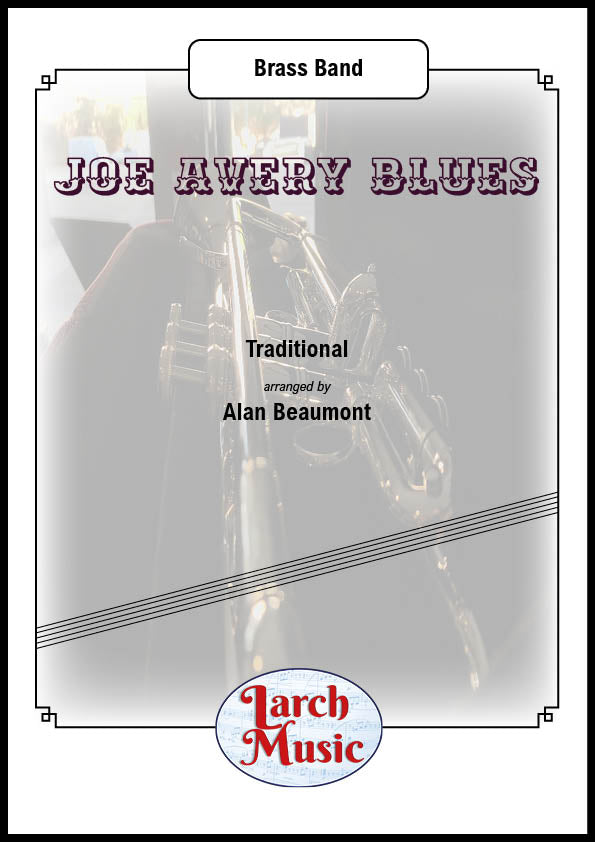 £30.00
£30.00Joe Avery Blues - Brass Band - LM435
COMPOSER: TraditionalARRANGER: Alan Beaumont"Joe Avery's Piece" is a song written by the eponymous trombonist that is popular at second line parades.The song is based on a simple 12-bar blues form and has a very singable melody.Before the melody starts, the trumpet plays a loud, high call to which the crowd responds, "Hey!"The band then proceeds to play the melody while second line parade festivities ensue.Makes a great concert opener or closer
In Stock: Estimated dispatch 3-5 working days
-
 £25.00
£25.00Marionettes Espagnole (Cesar Cui arr. by David Beal) - Brass Band Full Score and Parts - LM046
COMPOSER: Cesar CuiARRANGER: David BealA piece known by sound but not by titleAn excellent concert favourite, loved by all
In Stock: Estimated dispatch 3-5 working days
-
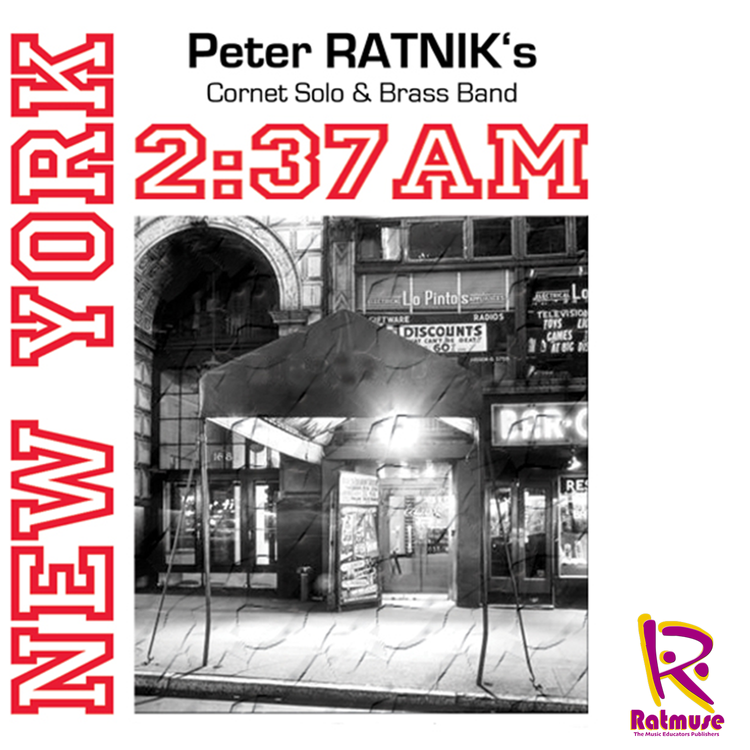 £30.00
£30.00New York 2:37AM - Bb Cornet & Brass Band - Peter Ratnik
COMPOSER: Peter RatnikFor Cornet Solo and Brass BandWritten in the style of jazz great, Miles Davis, New York 2:37am by Peter Ratnik will transport your audience to the dark streets of New York for a ride of their lives. This a great programmatic work and is ideal for any concert or entertainment contest.CLICK HERE TO HEAR THIS PIECE - New York 2:37am for Cornet Solo & Brass Band by Peter Ratnik
In Stock: Estimated dispatch 3-5 working days
-
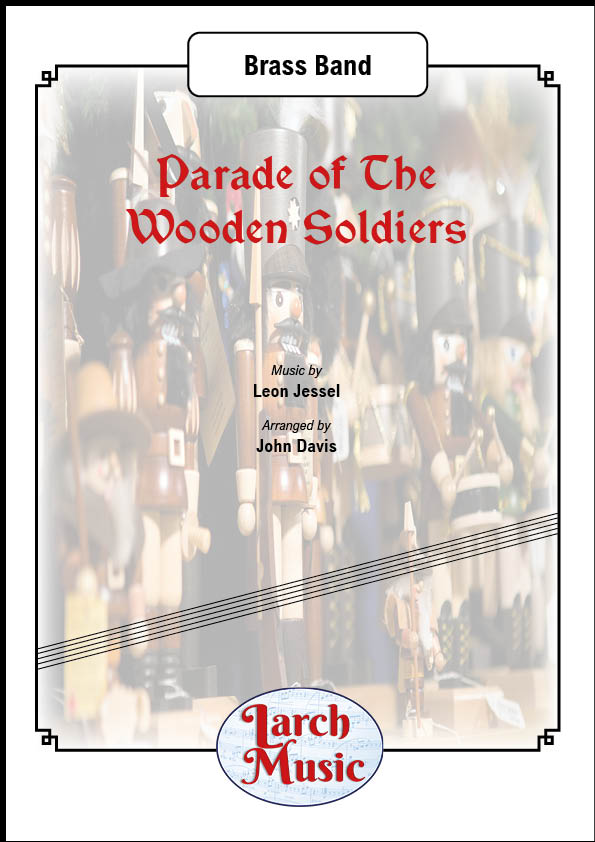 £25.00
£25.00Parade of The Wooden Soldiers (Leon Jessel arr. by John Davis) - Brass Band Sheet Music Full Score & Parts- LM404
COMPOSER: Leon JesselARRANGER: John DavisA great addition to the brass band repertoire from John DavisThe Parade of the Tin Soldiers(Die Parade der Zinnsoldaten), also known asThe Parade of the Wooden Soldiers, is an instrumental musicalcharacter piece, in the form of a popular jauntymarch, written by German composerLeon Jessel, in 1897.The Parade of the Tin Soldierswas originally composed for solopiano. Jessel later published it fororchestrain 1905, as Opus 123. Today, it is also a popular tune formarching bands,concert bands, and small orchestras, and for extremely diverse alternateinstrumentationsas wellLM404 - ISMN : 9790570004041
In Stock: Estimated dispatch 3-5 working days
-
 £55.00
£55.00Teens At The Junkyard - Brass Band Full Score & Parts - LM995
COMPOSER: Chris AllenProgramme NotesWriting about beautiful rural scenes and seascapes seems to be a very British thing to do. The themes of the English Pastoral School seem especially alive and well in the brass band musical repertoire, featuring in popular works such as John McCabe's Cloudcatcher Fells and Ray Steadman-Allen's Seascapes among many others. McCabe's engrossing depictions of place in Cloudcatcher, Maunsell Forts and Scenes in America Deserta conviced me that music really can transport the listener to a different environment, but rather than describing a landmark or a pastoral scene, I decided to give some attention to an ugly, neglected place.In Square Enix's Life is Strange, an episodic adventure game released in 2015, two teens use the local junkyard as a place of escape from the drama of their lives, unbeknowst to the fact that their friend, recently missing, was murdered and buried in that very place. Inspired by these dark images, I sought to write music that reflected the strewn broken glass, the piles of trash, the stories left behind in the waste of the junkyard. In keeping with this theme of buried history, I unearthed a musical relic from the brass band repertoire, cannibalising themes from Eric Ball's Journey into Freedom. In fragmenting and distorting such a treasured work I hope to make the listener feel a process of wasting away of precious memories.The first movement should be spiky, clinical and bleak, with a similar character to that of Harrison Birtwistle's Grimethorpe Aria, and the second, an intense, reminiscing, lyrical slow section. The final movement is in a similar vein to Elgar Howarth's Songs for B.L., ending with a blazing finish as if standing upon the tallest pile of trash in the junkyard and looking down upon the chaos below.Chris Allen (2021)About the Composer:Chris Allen, 22, studied Music at the University of Birmingham, graduating with a 1st in his Bachelor's degree in 2020 and achieving a Distinction in his Master's in Composition in 2021. Chris won the University of Birmingham Music Society's Composition Competition in 2019 with his piece for brass band, The Sirens, and was published for the first time by Modrana Music after winning the Durham University Brass Band's inaugural composition competition with his suite, Three Images of North-East England. Both pieces have been performed in concert and recorded recently and Chris continues to write new, original works for brass band.Chris started playing the tenor horn at the age of 7 under the tutelage of Don Blakeson, first joining the Melton Band and then moving onto Hathern Band,conducted by David Newman. Upon moving to university in Birmingham,Chris studied performance on the tenor horn with Owen Farr for a year,started playing with the University of Birmingham Brass Band, under thebaton of Stuart Birnie, and began writing and occasionally conducting his ownworks for brass band. However, his work is not confined to this ensemble,and as part of his studies, he has written for the Ligeti Quartet and theBirmingham Contemporary Music Group.
In Stock: Estimated dispatch 3-5 working days
-
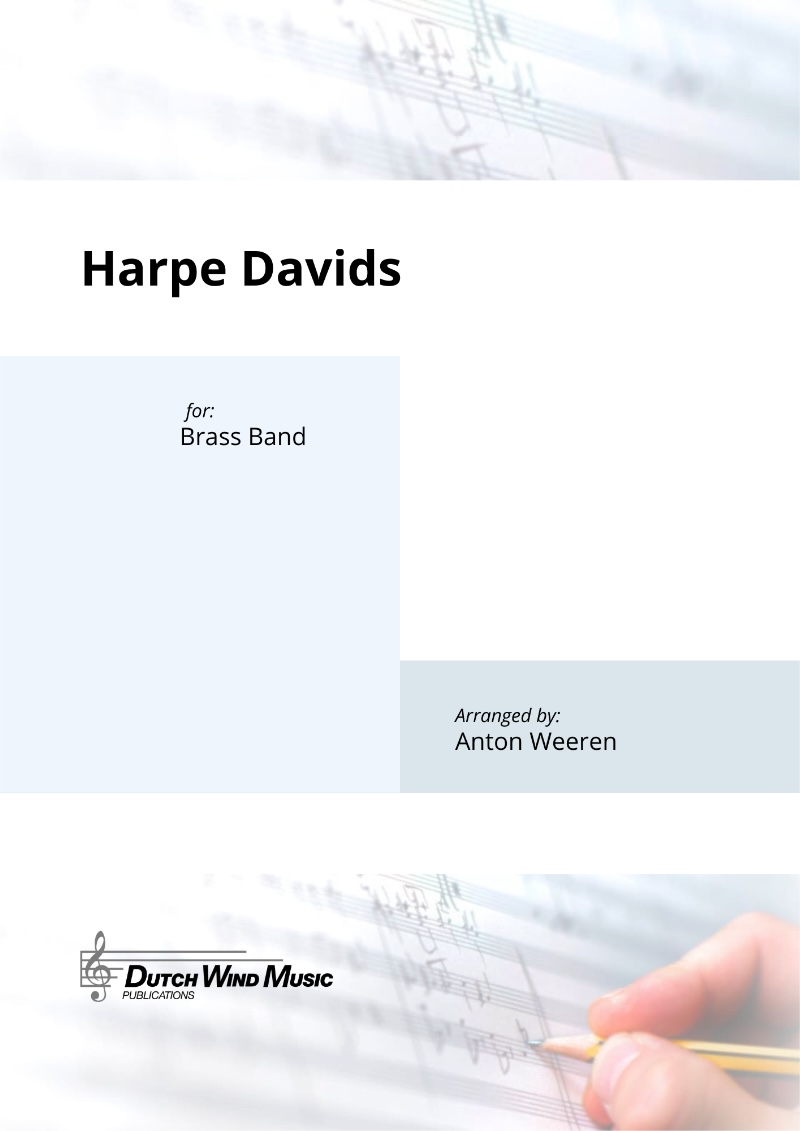 £76.00
£76.00Harpe Davids - Anton Weeren
"Harpe Davids" Psalm 150, arranged for brass band in a creative and festive way. Written for the 100th anniversary of the music association Harpe Davids from the Dutch village of Ridderkerk. As the opening of a concert, this festive piece of music is certainly not out of place. The sharp brass kicks off with signals, after which the whole orchestra gives a festive response. The psalm is fully quoted in the arrangement, including the two verses, making it also suitable for congregational singing in church and worship services.
Estimated dispatch 10-14 working days
-
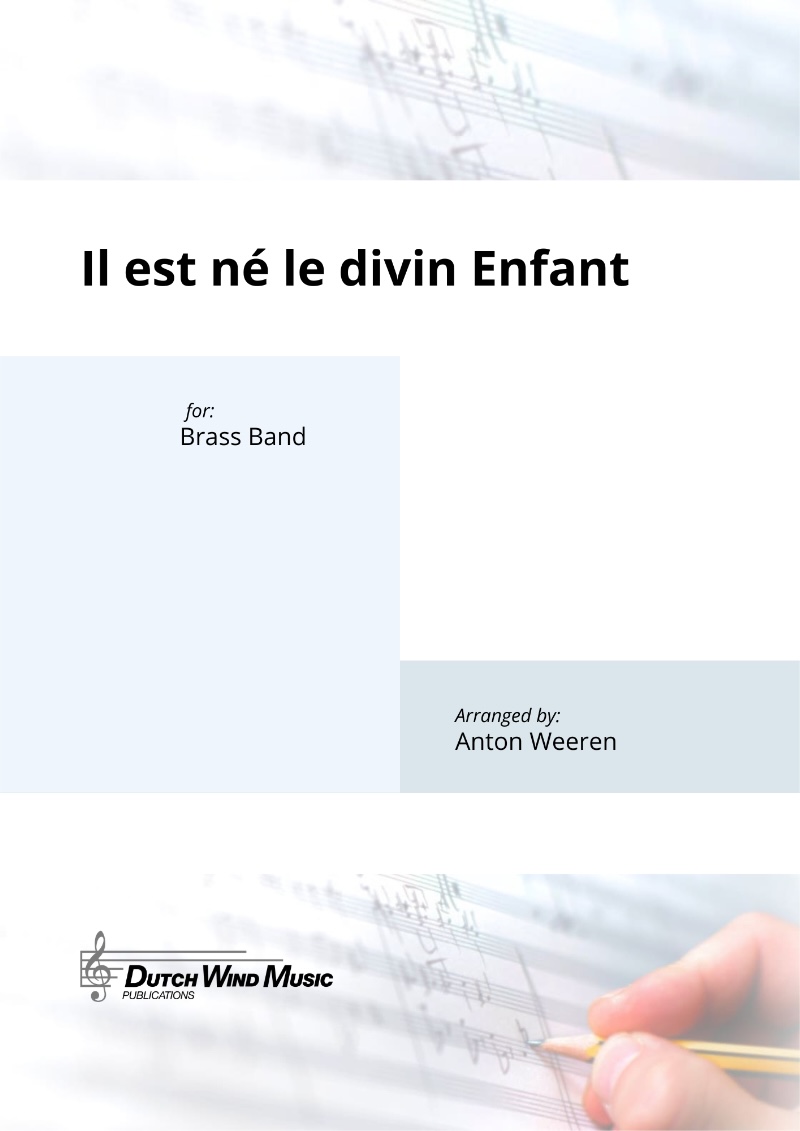 £67.00
£67.00Il est ne, le divin Enfant - Traditional/Anton Weeren
This French traditional Christmas song has been arranged for concert band in a very surprising and idiosyncratic way. Accessible, recognizable and fresh. The snare drum starts with the piccolo making cheerful interludes, after which slowly more and more instruments join in the accompaniment and then let the sharp brass usher in the main melody with a signal. In contrast to the way the piece started by slowly getting stronger and stronger, it ends up like a candle that slowly goes out.
Estimated dispatch 10-14 working days
-
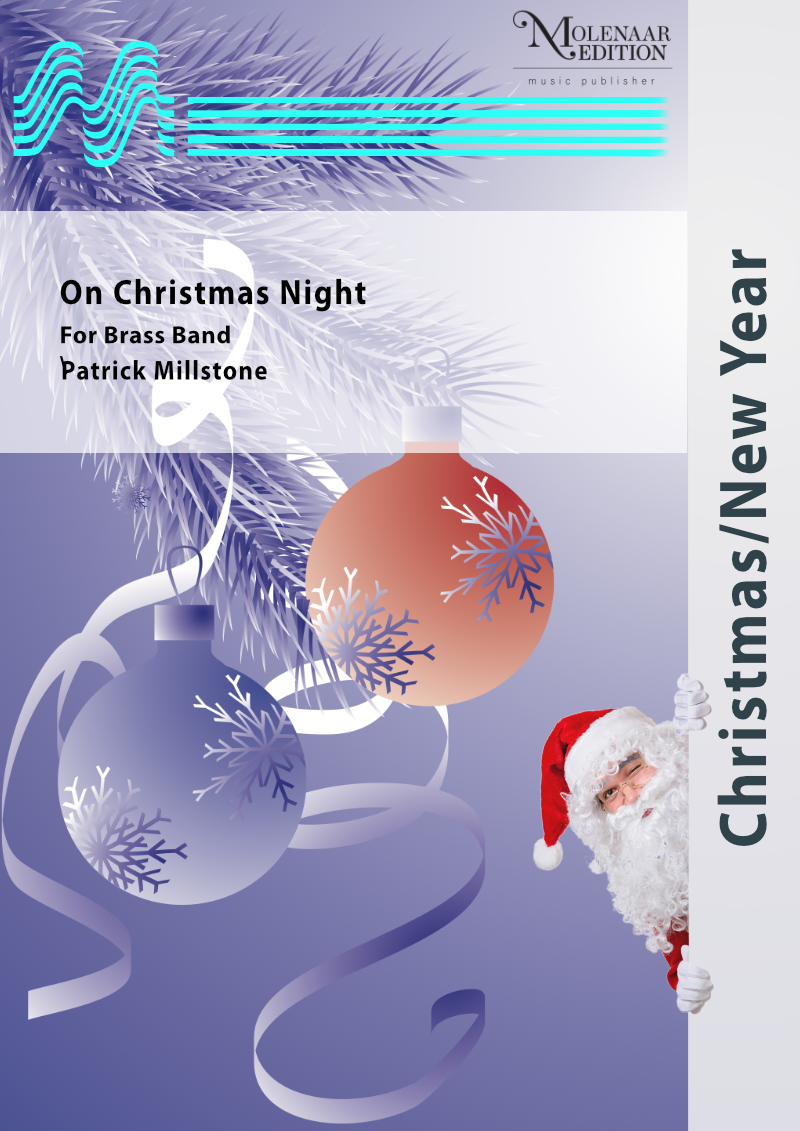 £55.00
£55.00On Christmas Night - Patrick Millstone
Here is a pleasing pastorale based on the traditional Christmas Carol 'On Christmas night all Christians sing' and with a quotation of 'Silent Night, Holy Night'. This piece will bring a moment of relief during your next winter concert.
Estimated dispatch 10-14 working days







